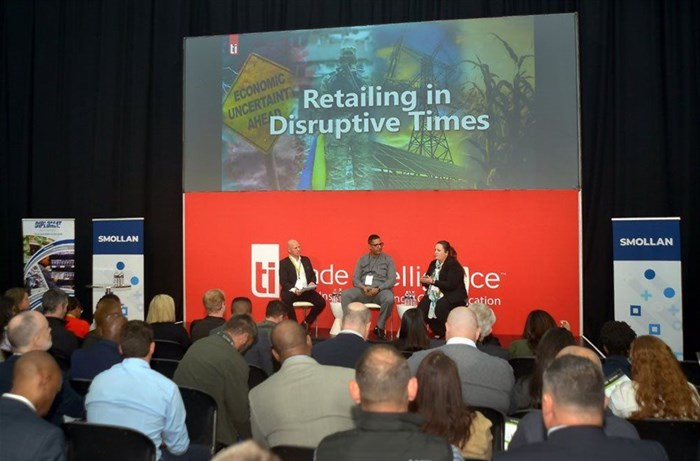
Related
Top stories






More news


Marketing & Media
Ads are coming to AI. Does that really have to be such a bad thing?














At the recent Trade Intelligence Retail Conference, held in Sandton as part of the Ecommerce Live at LeaderEx event, brought together some of the industry’s leading thinkers and players to discuss and shape the future of retail, encompassing a wide range of topics from global trends to local insights.
Summing up the conference, Andrea du Plessis, School of Retail manager of Trade Intelligence identified several key themes which most of the speakers had picked up on. The first of these was shopper centricity, which she noted is a powerful guiding principle to set up winning strategies, as the shopper is driving the agenda in FMCG retail.
“We live in a time where retailers have to be more shopper-centric,” said Unilever customer development vice president, Darryn Bassa, in the panel discussion on ‘Retailing in Disruptive Times’.
“If you are not answering the needs of shoppers, shoppers will make the choice. So, if you are not adapting, if you are not changing to the times, if you are not innovating and building that personalisation, they will switch.”
He also noted that loyalty was not something that could be taken for granted. “If you ask anyone to open their wallet now, I’m sure they will have Woolworths card, a Checkers Card, a Clicks card, you name it, a Pick n Pay card. There is a convergence of consumers asking and demanding more from us.”
The importance of data in understanding and serving shoppers was highlighted in every presentation.
Michael Smollan, chief growth and innovation officer of Smollan, noted that data-driven decision-making lies at the heart of achieving sustained growth, enabling informed decisions around innovative store formats and localised marketing strategies.
His colleague James Collett, chief executive of data and technology at Smollan, picked up on the growing importance of artificial intelligence to the industry.
“The current wave of advances in AI doesn’t actually bring us decision making, but instead a critical component of decision making which is prediction,” he said. “The other elements of a decision – data collection, judgment and action – remain, for the most part and for now, firmly in the realm of humans.”
As Andrea du Plessis noted, there is a rising need for data literacy throughout organisations, to enable the interpretation and communication of data-driven insights across business units and divisions.
Collaboration and partnership – which fell out of fashion during the cutthroat years of the consumer boom in the early 2000s – have re-emerged as critical enablers, especially where inflation and macro-economic pressures are pushing the price of goods to the consumer beyond the realistic. Collaboration and partnership can enable efficiencies across the value chain within the retail industry.
“Partnerships with complementary service providers are critical to provide end-to-end solutions to meet manufacturers’ objectives,” said Deon Morgan, vice president of business development at Diplomat SA. “Route to market service providers need to know and understand their capabilities and areas of expertise.”
The final insight for Andrea du Plessis was that effective solutions are the ones that are tailored to specific market dynamics, channel characteristics and customer needs. This theme is embodied in an icon of the South African FMCG space, the independent retailer.
“Nobody can connect to the community like the independent,” said Jad Pereira, CEO of UMS. “The consumer or shopper sees the corporate store as part of the group it belongs to, but sees the independent as part of their home.”
Like every area of the industry, this space is contested. “There is opportunity for Shoprite, Pick n Pay, and the rest to play in the cash & carry space,” said Sa'ad Chothia, an equity research analyst at Citi Group. But these businesses would have their work cut out for them.
“The independent can change and it does change; it blends in with its environment,” observed Jad Pereira.
Adaptability and resilience are key to trading successfully in disruptive times. Suppliers and retailers that embrace the possibilities offered by new technologies while maintaining the integrity of existing relationships with their shoppers and customers will survive this difficult period, and establish a platform for future growth.